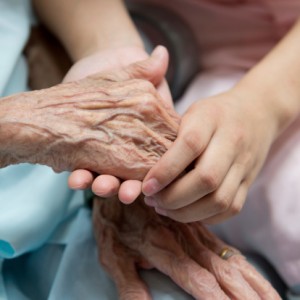 Palliative care professionals work with the dying; dealing with death and bereavement falls within their purview. Dealing with death and bereavement on a day to day basis takes its toll on palliative care professionals. How do they cope?
Palliative care professionals work with the dying; dealing with death and bereavement falls within their purview. Dealing with death and bereavement on a day to day basis takes its toll on palliative care professionals. How do they cope?
In a recent issue of Health and Social Work published by NASW Press, Wallace Chi Ho Chan, PhD, RSW, FT, Agnes Fong, MSW, RSW, FT, Karen Lok Yi Wong, MA, Doris Man Wah Tse, MBBS (HK), FHKCP, FHKAM (Med.), FRCP (Lond.), FRCP (Edin.), Kam Shing Lau, MBBS (HK), FRCP (Edin.), FHKCP, FHKAM (Med.), and Lai Ngor Chan, RN, RGN, RM, present their findings from a study of palliative care professionals in Hong Kong. Specifically, they interviewed doctors, nurses, and palliative care social workers to determine how working with the dying affects their emotional lives and their “sense of self,” and what coping skills have they developed to deal with the cumulative effects of dealing with dying patients on a day to day basis.
The researchers broke down the personal strains a palliative care professional faces into two categories: existential (i.e., one’s sense of oneself), and emotional. Through a series of interviews with palliative care professionals, they determined what kinds of existential and emotional challenges arise in palliative care situations. Existentially speaking, professionals in palliative care often have their basic assumptions about life and death shattered by the daily encounter with the dying. This includes three subtle processes: a heightened awareness of or confrontation with the nature of life and death; a discrepancy between perceived reality and one’s old beliefs; and reactions of distress and confusion. They encounter patients whose early death causes the patient not to achieve her potential, for instance, which leads to questioning about the nature of life and reality, including their own.
Emotional challenges spring from despair and being unable to relieve suffering sufficiently, or feelings of sympathy with the patient, or even attachment to a dying person. One interviewee discussed the powerlessness felt in a situation in which the medication delivered was insufficient to relieve the patient’s pain.
In the face of these existential and emotional challenges, how do palliative care professionals learn to cope?
The authors again break this down into categories. Existential coping calls for rebuilding one’s life and death assumptions, and then actualizing those assumptions. Emotional coping on a personal level involves accepting an managing the emotions. On a professional level, emotional coping calls for adjustment of one’s expectations in working with the dying, searching for meaning in the work itself, learning to differentiate between one’s work and oneself, and making adjustments in one’s professional identity.
The authors cite illuminating instances from the interviewees. In sum, they find that learning about the challenges of working in palliative care, and learning about what methods in coping with these challenges that palliative care workers have developed could be useful in educating future doctors, nurses, and social workers who are preparing to go into the palliative care field. They call for more research on these challenges and coping strategies, and for implementing the findings in education and practice.



